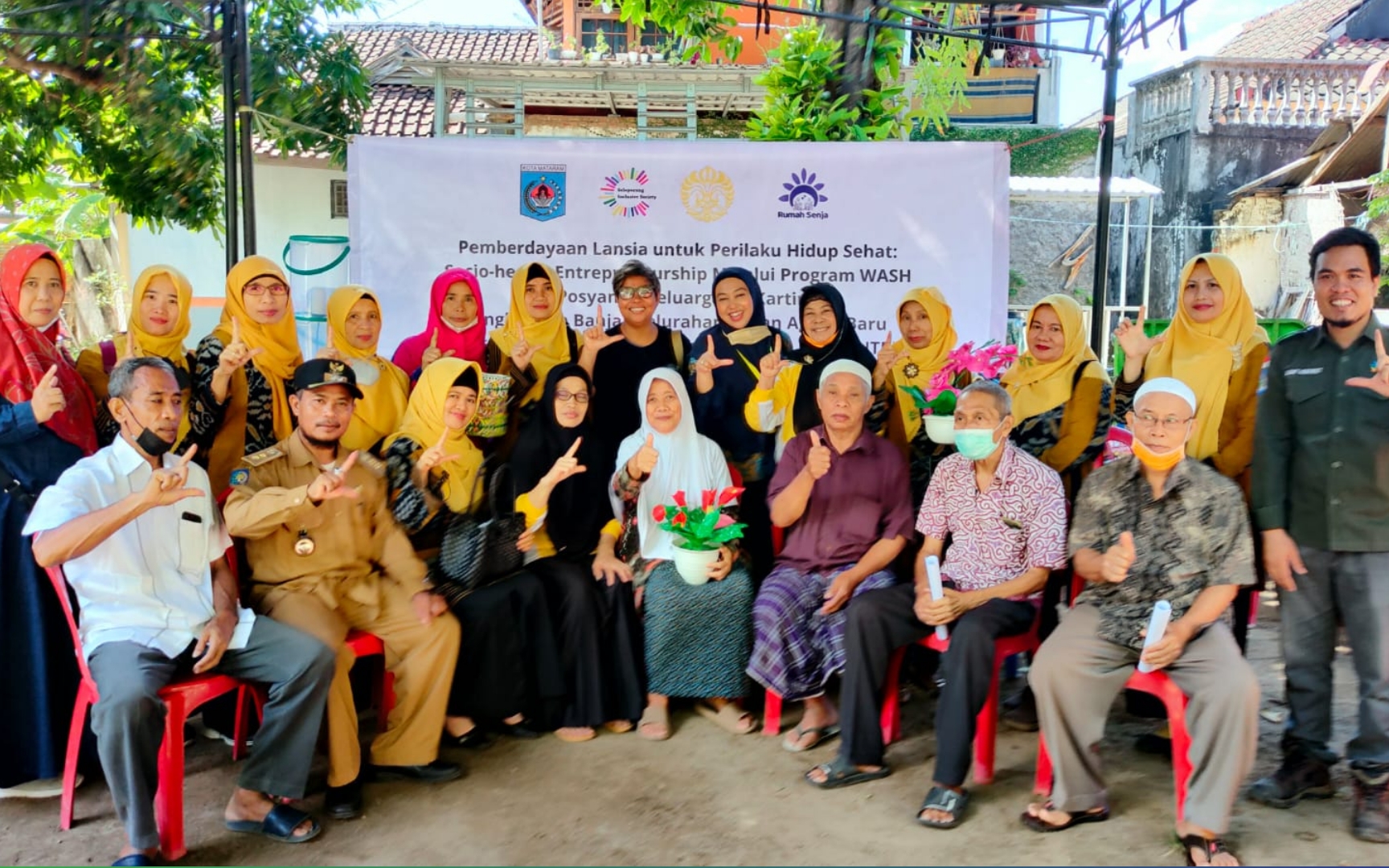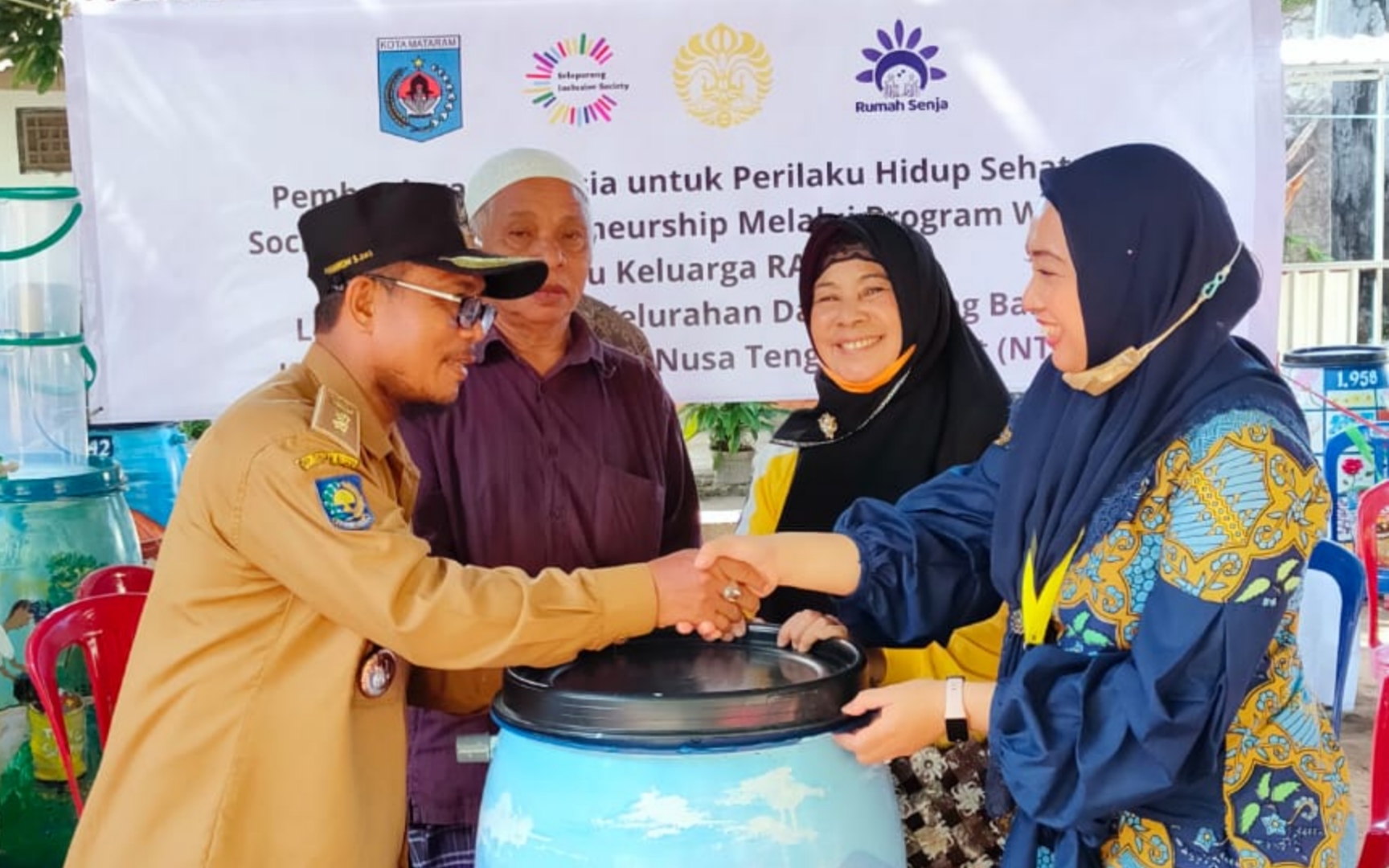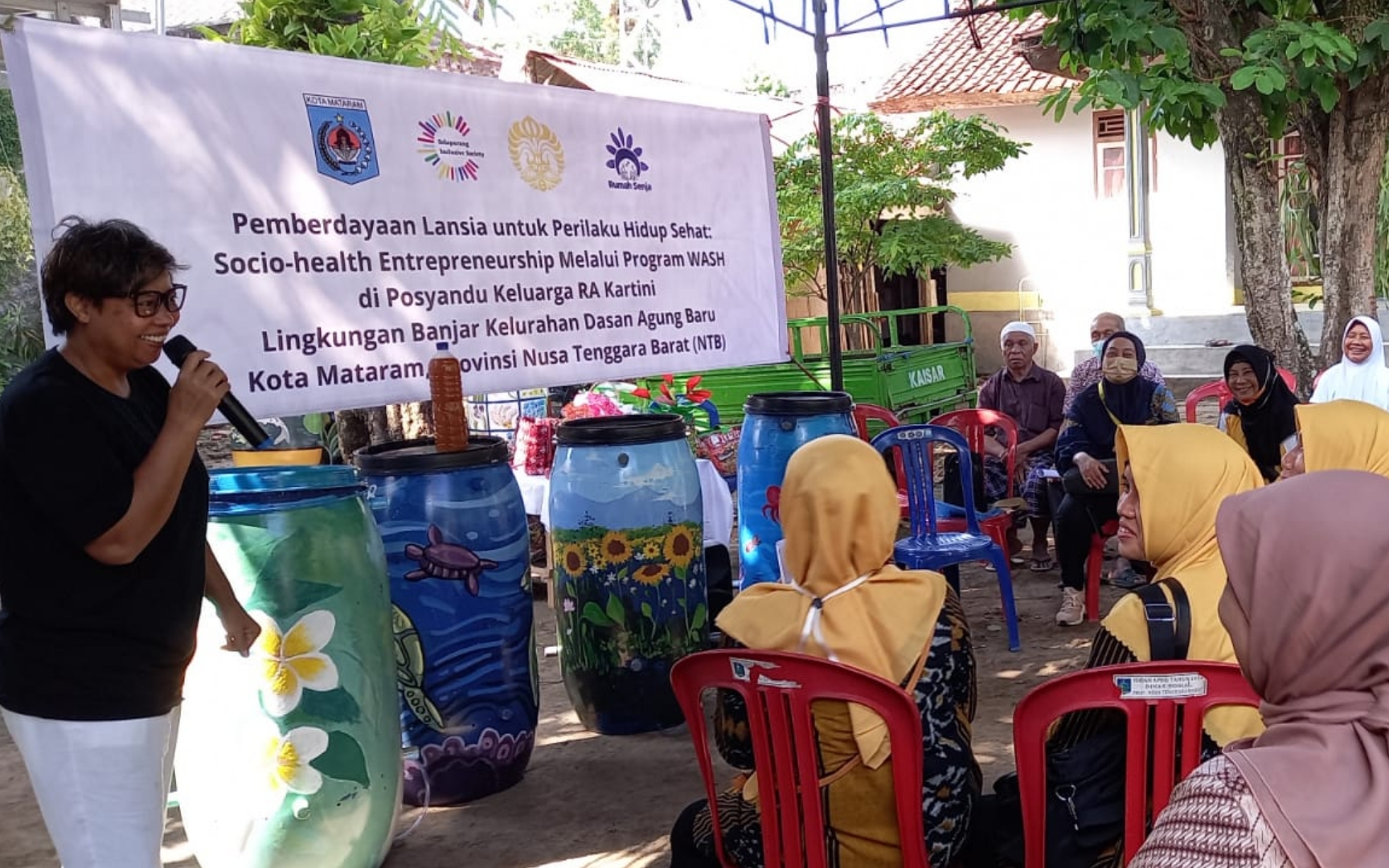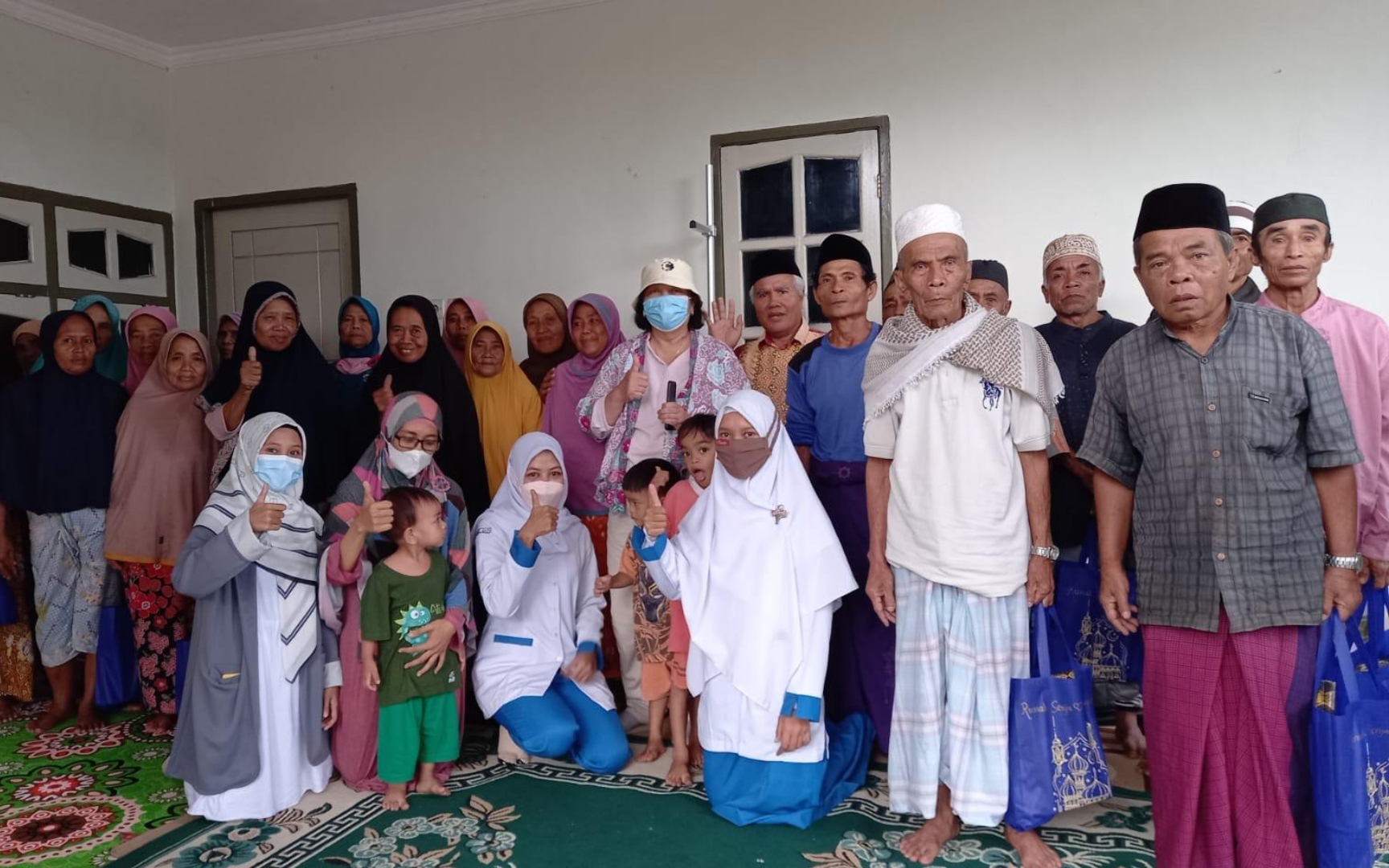Encouraging Social-Health Entrepreneurship, FEB UI Holds Community Service through WASH Program in NTB
MATARAM – (5/7/2022) The Faculty of Economics and Business of Universitas Indonesia conducted community service activities in Dasan Agung Village, Selaparang District, Mataram City, through a social-health entrepreneurship empowerment program entitled WASH (Water, Sanitation and Hygiene). This WASH program targets the elderly to be more productive in managing environmental hygiene while optimizing economic empowerment opportunities from organic waste management.
This activity is supported by Yayasan Rumah Senja, which won the AMPL Awards (Drinking Water and Environmental Health) from the Ministry of PPN / Bappenas in 2022, the NTB Provincial Health Office, and the Mataram City Government through Selaparang District and Dasan Agung Baru Village.
The Head of the FEB UI Community Service Team, Dr. Elvia R. Shauki, said that the primary purpose of this activity is to educate and empower the community, especially vulnerable groups of older people, on water, hygiene, and environmental health issues. Desti Fitriani, a member of the FEB UI Community Service team in the opening of the WASH workshop, added that the WASH program is one of the pilots of the Pentahelix cooperation scheme in helping the government achieve its development targets.
Furthermore, Dr. Elvia R Shauki added that the impact of this activity could be seen from 3 (three) perspectives.
First, in terms of environmental health, this workshop and empowerment can trigger the development of hygienic and sanitary living behavior starting from the household level. Hopefully, with a good and massive system, this activity can be duplicated in the future to encourage the achievement of one of the STBM (Community-Based Total Sanitation) pillars which aims to change hygienic and sanitary behavior through community empowerment. One of the STBM pillar principles, securing household waste, is achieved through recycling. One example of an activity is sorting organic kitchen waste to be used as liquid fertilizer using the composting method.
Secondly, regarding social impact, this program targets older people who have often received a negative stigma as unproductive members of society and tend to be a burden. Through this activity, the elderly are empowered so that they are not only passive beneficiaries but can also become active agents of change who sustainably make positive contributions to development.
Third, from the economic impact, one of the outputs of this program is the production of organic liquid fertilizer as the final result of household kitchen-based organic waste management. One household composter is estimated to produce an average of 20-30 liters of liquid fertilizer every month. One liter of liquid fertilizer can be sold for an average of IDR 3,000 per liter. Thus, economically, one household composter can generate Rp60,000 – Rp90,000 per month. This value is enough to pay BPJS contributions for the elderly at least.
The selection of Kelurahan Dasan Agung Baru, Selaparang Sub-district in NTB Province, as the activity location, also has several reasons.
First, Kelurahan Dasan Agung Baru has the advantage of having many elderly residents. So that mobilizing the target becomes easier. Second, this Kelurahan has also implemented a Regional Regulation on waste management. This local regulation is an essential enabling environment in ensuring the sustainability of this workshop. Another reason is that this Kelurahan will be encouraged to become an Elderly Friendly Kelurahan under the umbrella of the Kecamatan Selaparang Inclusion program.
After the program is launched, regular monitoring will be conducted to monitor the sustainability of the household organic waste management program in Dasan Agung Village, as well as evaluate the production results in the form of liquid organic fertilizer and solid compost. The results will be considered for the planned expansion of similar programs in other more expansive areas to encourage local community empowerment in managing waste.




